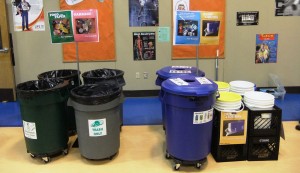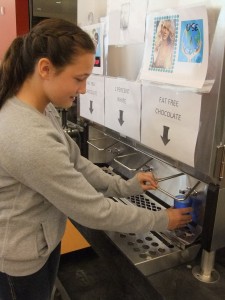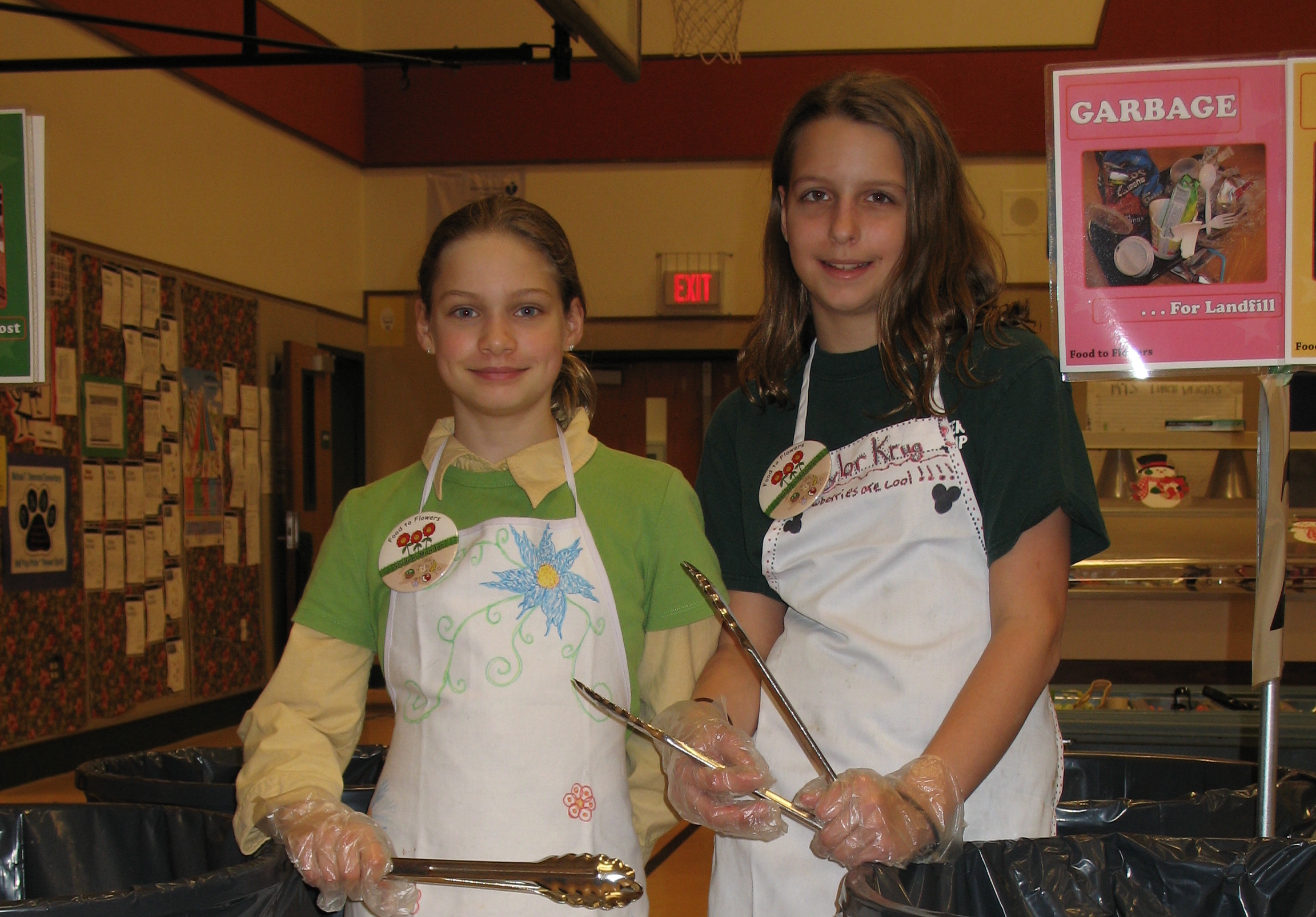Submitted by Thurston County Solid Waste

Schools throw away a lot of stuff, and a lot of that stuff is food. In fact, more than 70% by weight of what a typical school throws away each day is food, food-soiled paper, and single-use serviceware and packaging. Getting rid of all that stuff can cost a lot of money and wastes a lot of resources. Thurston County’s Food to Flowers program partners with local schools to help them reduce this kind of waste, to save money, and to provide their students with hands-on environmental learning opportunities.
Below are two examples of some of the innovative ways Food to Flowers schools are making a difference for their students, for the environment, and for our community.
Rescuing school food to donate to the Food Bank
Some of the food that schools throw away is food that’s already been prepared, but wasn’t served to students. This includes hot dogs, pizza slices, burritos, and tons of untouched fruit and vegetables. Some Olympia and Tumwater schools are now rescuing this food and donating it to the Thurston County Food Bank. At the Food Bank they make creative use of these school leftovers. For example, they take hot dogs from schools, cut them up and combine them with beans rescued from a local restaurant to create ready-to-eat meals for hungry families in our community. Last school year, more than 4 tons of school food was donated to the Food Bank as part of this program.

Reducing milk carton and milk waste
K-12 schools in Thurston County generate about 5,000,000 half-pint milk cartons each school year, enough cartons to fill an Olympic size swimming pool and still have some cartons to spare. Today, ten Food to Flowers schools serve most of their milk using milk dispensers and durable cups. Making this change has reduced milk waste by more than 8,500 gallons and eliminated more than 385,000 milk cartons from the trash each year. You can check out school milk dispensers in action here.
To learn more about the Flowers to Flowers program, contact Peter Guttchen, Thurston County Waste Reduction Specialist, at guttchp@co.thurston.wa.us or 360-867-2283.
Food to Flowers by the Numbers
- Participating schools: 32
- Participating students: 14,530
- Tons recycled & composted each year: 175 tons
- Lunchroom recycling rate: 89%
- Milk cartons eliminated each year: 385,000
- Milk waste eliminated each year – 8,500 gallons
- Average saving in garbage & recycling collection costs: 15-20%
- Spork kits eliminated each year: 2,740,710 – A spork kit is a plastic spork, a plastic straw, and a napkin packaged together inside of a plastic bag.




















































